Morial, Business Groups Challenged Fortune 500
Support Journal-ismsDonations are tax-deductible.

Kendra Lusty outlined the differences between diversity, equity and inclusion in 2022 for Access Perks.com. (Credit: AccessPerks.com)
Morial, Business Groups Challenged Fortune 500
By Robin Washington
The names of Fortune 500 companies that have backtracked on corporate diversity, equity and inclusion programs since a Republican-led onslaught against those efforts will soon be made public.
That’s the vow of Marc Morial, president and CEO of the National Urban League, speaking at the Journal-isms Roundtable on “How to counter the assault on diversity, equity and inclusion,” held via Zoom on April 11.
“We’re gonna have to, you know, expose them!” Morial told journalists and educators at the Roundtable, which featured national civil rights figures discussing efforts to curtail, or outright outlaw, DEI in schools, government and private industry, including in journalism.
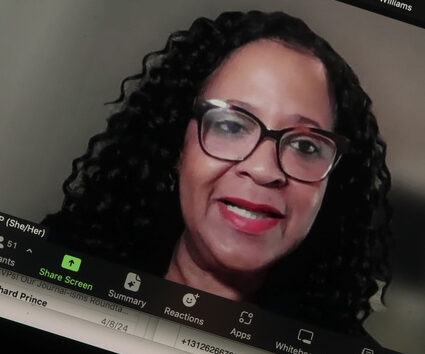 The calling-out was only one strategy discussed at the session. Patrice Willoughby (pictured, by Sharon Farmer), senior vice president for global policy and impact for the NAACP, said, “We need to vote and that is to vote with our pocketbooks. . . . We shouldn’t patronize companies that are hiding because they are afraid of activists on their board or others that are anti-DEI.”
The calling-out was only one strategy discussed at the session. Patrice Willoughby (pictured, by Sharon Farmer), senior vice president for global policy and impact for the NAACP, said, “We need to vote and that is to vote with our pocketbooks. . . . We shouldn’t patronize companies that are hiding because they are afraid of activists on their board or others that are anti-DEI.”
Asked whether that included direct action against those companies, Willoughby added, “The NAACP is considering every tool in the tool belt.”
As one example, in response to the University of Florida and other state schools that have eliminated their DEI programs, the NAACP in March urged Black student-athletes to reconsider attending public colleges and universities in Florida, Willoughby noted.
Another strategy involves journalists practicing journalism, as individuals and as an advocacy group protecting the First Amendment.
Report on the successes that diversity has brought the nation, many urged. Don’t let the detractors define the issue.
Political coverage plays a role. As Kathleen McElroy of the University of Texas pointed out, “so many people . . . focus on presidential elections when so many decisions are made in midterm state elections,” in which the state legislators voting to dismantle DEI programs were chosen.
In addition, as the Supreme Court carved out an exception for military academies in its 2023 ruling striking down race-conscious affirmative action in college admissions, some in the discussion said the same argument might be made for journalists.
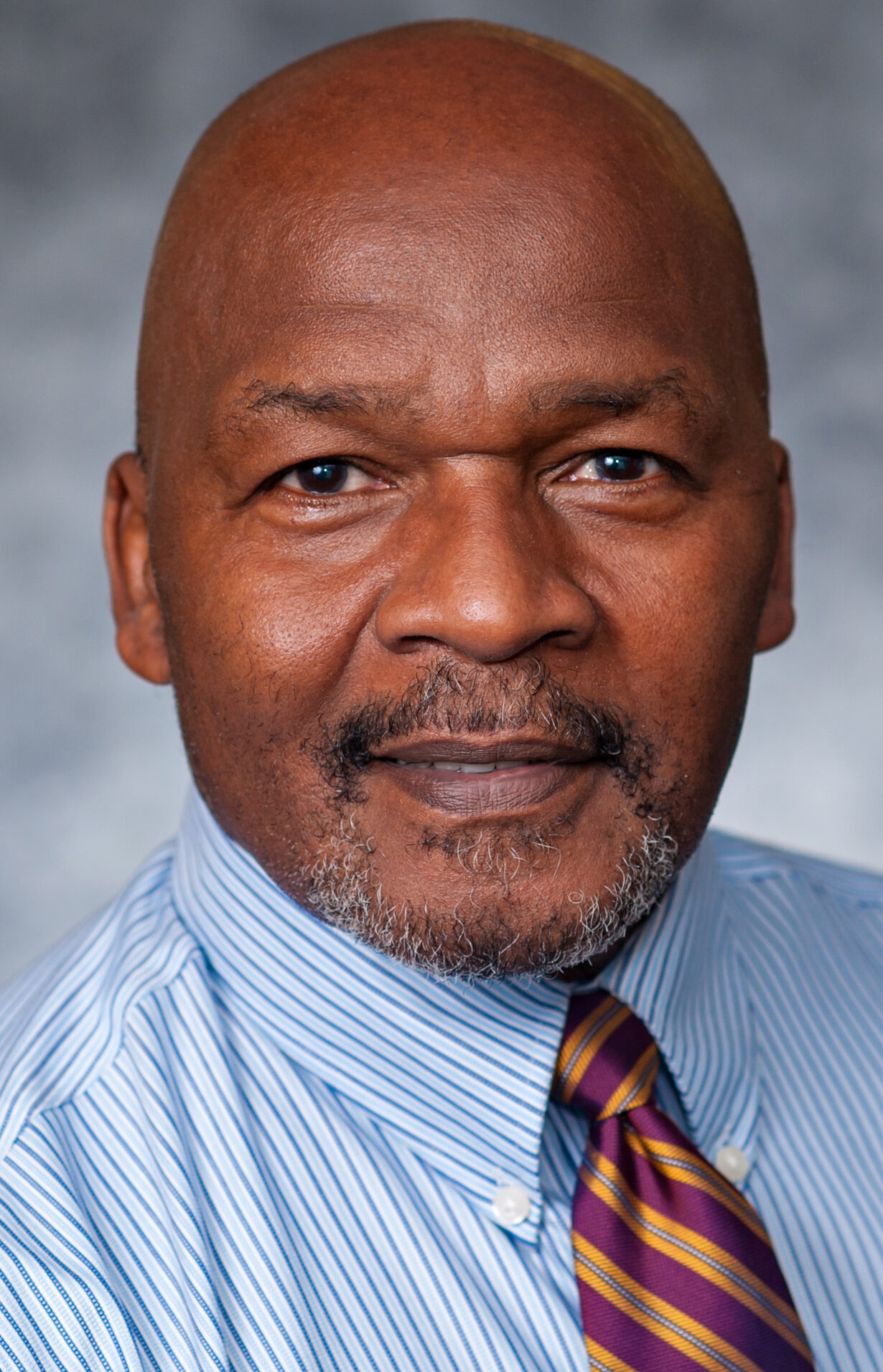 “We have to make a specific legal argument against the Supreme Court decision that doesn’t focus on political, social or economic issues,” said John Watson (pictured), associate professor of journalism ethics, communication law and journalism at American University.
“We have to make a specific legal argument against the Supreme Court decision that doesn’t focus on political, social or economic issues,” said John Watson (pictured), associate professor of journalism ethics, communication law and journalism at American University.
“It has to focus on the professional mission of journalism. And we cannot fulfill that mission as a profession, whether Black, white, or any race or religion, unless we have a newsroom filled with and guided by a diverse population. The diverse perspectives are the best opportunities for us to tell the accurate truth and the whole truth.”
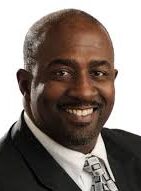 Added Greg Moore (pictured), founder and CEO of KLOWTIFY and former editor of the Denver Post, “The military exception on affirmative action proves the fallacy of the entire AA decision. It is fine for affirmative action to exist for us to die in fighting for this country but not to participate in the slicing and sharing of the economic pie. It is simple as that.
Added Greg Moore (pictured), founder and CEO of KLOWTIFY and former editor of the Denver Post, “The military exception on affirmative action proves the fallacy of the entire AA decision. It is fine for affirmative action to exist for us to die in fighting for this country but not to participate in the slicing and sharing of the economic pie. It is simple as that.
“As journalists we need to raise our voices individually pointing things like this out and report on the individual conversations and encounters we are having with people of all races who come to this predicament for very different reasons.
“Our neighbors who we share drinks and dinner with support these court and political decisions and we need to write about this on our blogs and other venues,” Moore continued in a chat-room message. “We can’t depend on newsrooms that are controlled by hedge funds and two faced corporations to let us tell this story. Second as Marc pointed out the country is 40 percent minority but that minority is not monolithic and we need to figure out how to build coalitions again. Because our enemies want to exploit that fractured reality.”
As reported in this space last week, Morial called for women and non-Black people of color to join African Americans in countering the anti-DEI offensive, and the Journalism & Women Symposium, known as JAWS, responded with a statement that it “stands with people of color in combating anti-DEI misinformation, especially as it affects women journalists of color.” The journalists-of-color groups have not weighed in.
The Journal-isms Roundtable was attended by 58 people via Zoom, with 32 watching on Facebook and 109 viewing the YouTube recording as of April 21.
The impending exposure of backtracking Fortune 500 companies follows a letter cosigned by 12 “business advocacy” groups, including the National Urban League, the National Minority Supplier Development Council and the Airport Minority Advisory Council — all represented at the Roundtable — that asked the nation’s largest companies to “maintain and expand their commitments to diversity initiatives in the face of opposition from a vocal minority that is out of step with public sentiment and disregards the needs of businesses.”
The Congressional Black Caucus sent a similar letter.
Many of those programs were created following the 2020 Minneapolis police murder of George Floyd during what has been termed a national reckoning on race.
“That’s the good news story,” Morial told the Roundtable attendees. “Then you hear, ‘Oh, you know, we’re gonna remain committed, but we’re gonna keep our head down now. We’re not gonna say anything publicly. We don’t wanna be, you know, incite any opposition.’
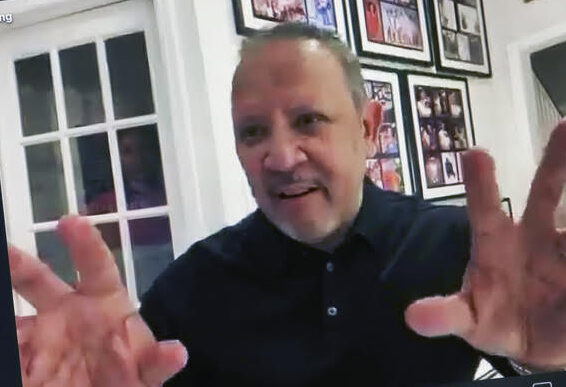
“We’re gonna have to, you know, expose them!” Marc Morial told the Journal-isms Roundtable. (Credit: Sharon Farmer/sfphotoworks)
“That’s number 2. And the third is ‘We’ve gone dark. We haven’t responded,’ and many did not respond to our letters,” he said, citing the similar letter from the CBC.
Those are the companies he vowed to expose, though he stopped short of naming names during his presentation. He said a report would be coming “very soon” from the Caucus.
The threatened exposure comes as one Fortune 500 company, Gannett Co. Inc., the nation’s largest newspaper publisher, is confronting a suit charging that its DEI programs discriminate against white workers.
In the lawsuit, five current and former employees claim “Gannett executed (a) reverse race discrimination policy” when the aggrieved workers were fired or “passed up for promotion in favor of less qualified women and minorities.”
The company, which employs 11,000 workers, states it remains committed to DEI, with a web page proclaiming “inclusion is what we do,” “diversity is who we are” and “equity is how we operate.”
“Gannett argues that the individual race discrimination claims in the suit are ‘nothing but speculation and conclusory allegations and/or complain about non-actionable conduct such as performance evaluations and/or a voluntary resignation.‘ In addition, the allegations are ‘conclusory and deficient, ‘ ” Ray Schultz reported in November for Publishers’ Daily.
Gannett declined to participate in the Roundtable.
The anti-DEI movement has perhaps scored its greatest success in state-funded higher education.
The Chronicle of Higher Education reports that 80 anti-DEI bills have been proposed in 28 states.
Bill sponsors accuse educators, under the banner of DEI, of intimidating students who disagree with them politically. Other attacks on DEI come from groups such as America First Legal, a law firm headed by Stephen Miller, a former senior aide to then-President Donald Trump.
America First Legal has filed “more than a dozen complaints over DEI policies at such companies as McDonald’s, Morgan Stanley and the National Football League,” The Washington Post reported, quoting its general counsel Gene Hamilton, who denounced “so called DEI programs, which almost always overtly discriminate against American citizens based on their race and sex.” A Wall Street Journal letter writer shorthanded the phrase as “Division, Entitlement and Intimidation.”
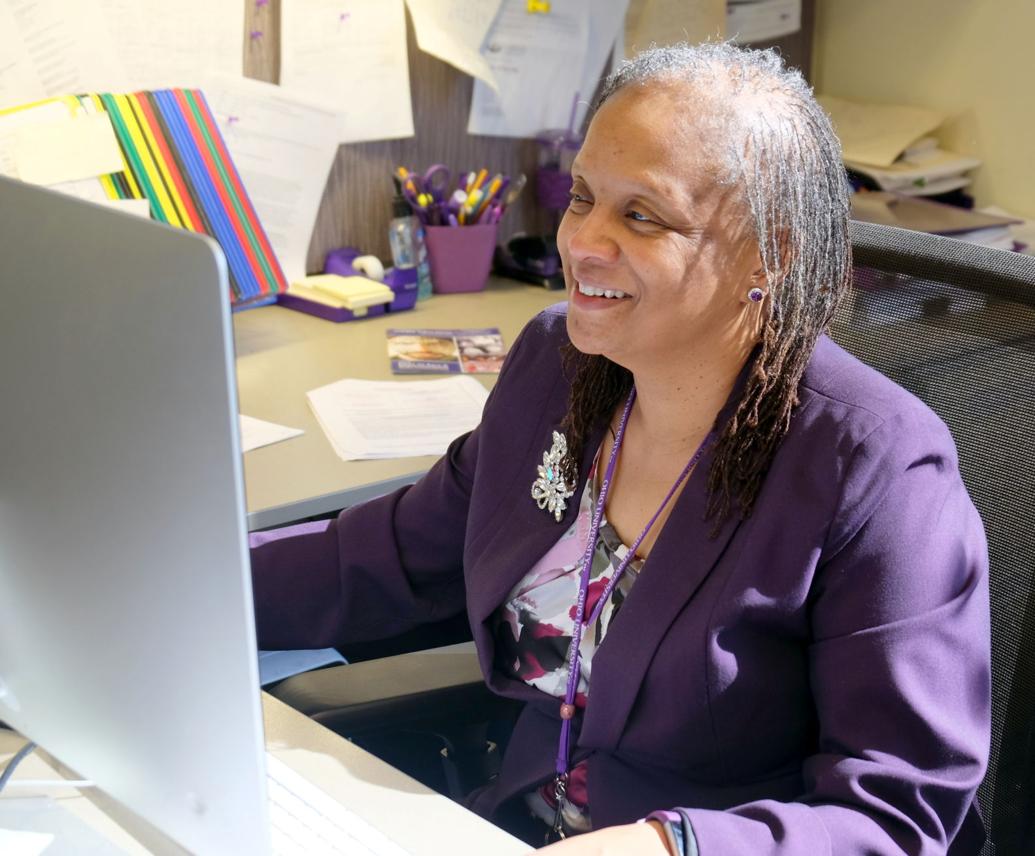 Some of the backtracking is coming without explicit legislation, however. In February, over the objections of the dean of the journalism school, Ohio University paused awarding scholarships for which race may be a criterion, responding to the Supreme Court decision. They include 12 in the journalism school, Dean Eddith Dashiell (pictured) told the Roundtable.
Some of the backtracking is coming without explicit legislation, however. In February, over the objections of the dean of the journalism school, Ohio University paused awarding scholarships for which race may be a criterion, responding to the Supreme Court decision. They include 12 in the journalism school, Dean Eddith Dashiell (pictured) told the Roundtable.
“After reading this decision numerous times, I’m convinced that efforts to apply the U.S. Supreme Court’s Students for Fair Admissions v. Harvard (2023) decision to also include diversity (race-based) scholarships provided by donors is a political move — not a legal one,” Dashiell wrote in the Athens (Ohio) News.
“The Ohio Attorney General has decided that even though the US Supreme Court decision focused on race-based admissions, “that it should also include diversity scholarships because they are discriminating against our white students.”
Confirming a point made by Morial and Willoughby, Dashiell told the Roundtable, “What was frustrating is I’ve been met with this silence, that was referred to with businesses who secretly still support diversity.
“But they want to do it quietly and they don’t want to speak out. Or they’ve basically just gone dark.”
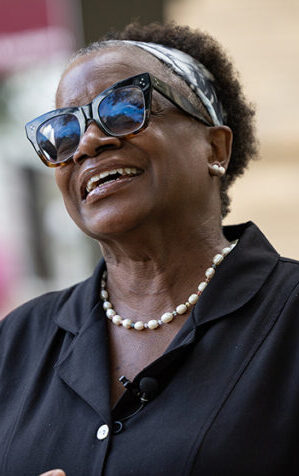 McElroy (pictured) was in the news last summer when Texas A&M celebrated hiring this veteran journalist — who worked at The New York Times for two decades and formerly directed the University of Texas at Austin’s School of Journalism — to revive the A&M journalism program. But the deal fell apart after a vocal group of constituents in the Texas A&M system expressed concern over her experience at the Times and with her work on race and diversity in newsrooms, McElroy told the Texas Tribune at the time.
McElroy (pictured) was in the news last summer when Texas A&M celebrated hiring this veteran journalist — who worked at The New York Times for two decades and formerly directed the University of Texas at Austin’s School of Journalism — to revive the A&M journalism program. But the deal fell apart after a vocal group of constituents in the Texas A&M system expressed concern over her experience at the Times and with her work on race and diversity in newsrooms, McElroy told the Texas Tribune at the time.
“During the failed negotiation process, McElroy said that Bermúdez [José Luis Bermúdez, who led the school’s College of Arts and Sciences] told her he could not protect her from university leaders facing pressure to fire her over ‘DEI hysteria’ surrounding her appointment. Bermúdez advised McElroy to stay in her tenured role at UT-Austin, the Tribune reported. There she remains.
McElroy, who is also co-chair of the commission on minorities of the Association for Education in Journalism and Mass Communication (AEJMC), told the Roundtable, “There has been a chilling effect in the state of Texas. People have lost their jobs at the University of Texas.
“People who had been moved from positions that were no longer DEI still found themselves out of a job.
There are policies now that make it very difficult for student organizations to get the same sort of support from the school as they did before. And this is throughout the state. . . .
“There is a chilling effect on professors, especially assistant professors, professors who don’t have tenure or professors who are on annual contracts. . . .
“I feel a chilling effect, even though I’m a senior professor and I’ve gone through some stuff. . . . Realize that In theory, the DEI legislation in Texas only applies to certain things, but I suspect the next time the legislators meet, they may enforce it even more. . . .
“As it is, the two largest universities in the state of Texas have some of the smallest African American populations. . . . Would I encourage a woman of any color to attend a university in Texas? Maybe not.”
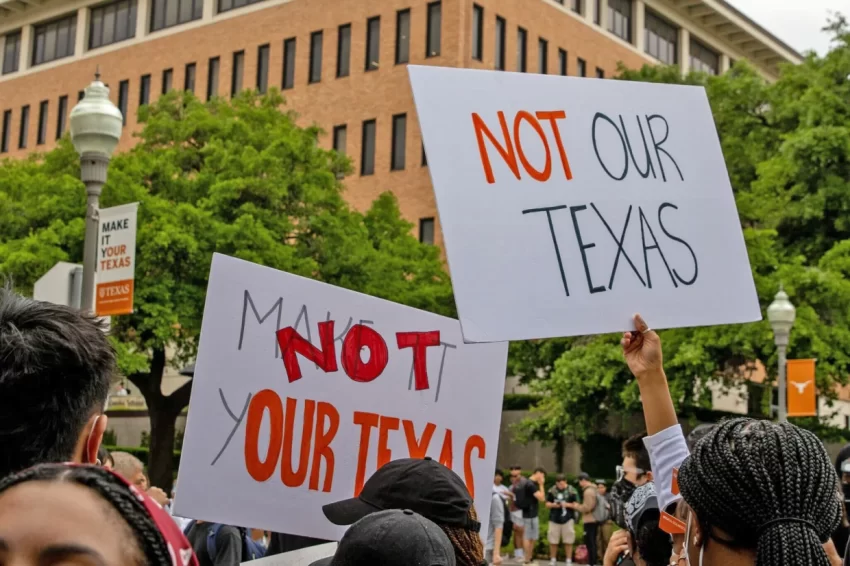
Students protested DEI-related layoffs at the University of Texas at Austin on April 15. (Credit: Madison Morris, NBC)
Misrepresentations of DEI, and an uninformed public’s propensity to believe them, play into the hands of its detractors, added Letrell Crittenden, director of inclusion and audience engagement at the American Press Institute.
“It allows individuals who are opposed to this work to basically confuse what DEI is because people don’t know what it is,” he said during the Roundtable discussion.
“It’s confusing to most people. So I think there needs to be much more clarity in detail as to all the different components of DEI and what it actually does and does not do, as opposed to having this discussion that is always cooked into hiring, which is not in many cases what DEI does.”
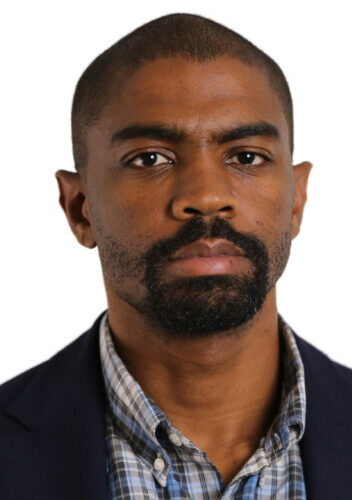 Journalists can stem that misinformation by fact-checking before using the definitions hurled by critics, said Daarel Burnette II (pictured), a senior editor at the Chronicle of Higher Education. Burnette led a team of 10 to develop the publication’s “DEI Legislation Tracker,” which lets the reader “explore where college diversity, equity, and inclusion efforts are under attack.”
Journalists can stem that misinformation by fact-checking before using the definitions hurled by critics, said Daarel Burnette II (pictured), a senior editor at the Chronicle of Higher Education. Burnette led a team of 10 to develop the publication’s “DEI Legislation Tracker,” which lets the reader “explore where college diversity, equity, and inclusion efforts are under attack.”
To begin with, Burnette said, diversity, equity and inclusion are actually different things.
“Colleges address those three different things in very separate ways depending on what campus you’re on. They will address inclusion in a way that’s very specific (and different) than ways that actually add to diversity. ‘Cultural wars’ I just find fascinating because it in a sense denigrates what’s actually happening.
“And it avoids us talking about real people. And real things and real policies. . . . I would just encourage people to put faces and names and scrutinize a lot of the — so we’ve been doing a lot of coverage too about a lot of what the DEI efforts look like on college campuses.
“And some of them are just not very effective. . . . It’s a lot of smoke and mirrors in a sense. Colleges trying to avoid actually addressing real issues of discrimination and disparities between students on campus by saying, ‘Oh, we have this DEI office, but what the DEI office is actually doing is either ineffective or it is — some offices are either understaffed or underfunded.”
 Keith Woods (pictured), chief diversity officer at NPR, contributed his thoughts just days before the resignation of Uri Berliner, the senior editor who publicly argued that the network had “lost America’s trust” by approaching news stories with a “rigidly progressive mindset,” one that included initiatives to advance racial diversity.
Keith Woods (pictured), chief diversity officer at NPR, contributed his thoughts just days before the resignation of Uri Berliner, the senior editor who publicly argued that the network had “lost America’s trust” by approaching news stories with a “rigidly progressive mindset,” one that included initiatives to advance racial diversity.
“Diversity work in too many places has become a bunch of initiatives and programs with no connection to mission or strategy,” Woods messaged. “When I ask people why they do the work, they often describe a future state in which DEI has helped tell more truth or include more people or gain greater audiences.
“That’s all true and important. But the other reason we do it is because there is racism, sexism, homophobia/transphobia, religious bigotry, ignorance and apathy – a whole history and universe of oppression and dispossession.
“That’s the why. When you stop saying that, you open the door for the redefining of history that these laws are now formalizing. You need to describe what you’re fixing, why it needs fixing, and what the goal is at the end. You can’t just launch another internship program or minority fellowship or whatever.
“And yes, some people have done DEI badly. But if you eliminated every profession because some practitioners messed it up, there would be no politicians or lawyers to make these laws or file the lawsuits, and no journalists to tell you it happened.”
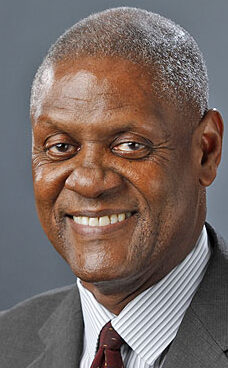 Virgil Smith (pictured), a veteran news executive focusing on diversity as former president and publisher of the Asheville (N.C.) Citizen-Times and vice president for human resources for Gannett Co, echoed some of Woods’ thoughts. “From my perspective, it is evident that DEI is facing opposition from those who do not grasp its concept or purpose,” Smith messaged after the Roundtable.
Virgil Smith (pictured), a veteran news executive focusing on diversity as former president and publisher of the Asheville (N.C.) Citizen-Times and vice president for human resources for Gannett Co, echoed some of Woods’ thoughts. “From my perspective, it is evident that DEI is facing opposition from those who do not grasp its concept or purpose,” Smith messaged after the Roundtable.
“I listened to a diverse panel, none could articulate the importance of DEI. It is worth noting that individuals from marginalized communities are often required to prove their merits, while privilege is granted to white individuals, including through family legacies in education and professional settings.
“Furthermore, DEI is beneficial for business success as it encompasses everyone and promotes a diverse pool of talent. Without monitoring hiring practices, there is a risk that unconscious biases may lead hiring managers to prefer candidates who resemble themselves. Therefore, the necessity of DEI persists despite the challenges it may encounter.”
- Monica Casey, WRAL-TV, Raleigh, N.C.: University of North Carolina moves to eliminate diversity goals (video)
- John Hanna, Associated Press: Kansas has a new anti-DEI law, but the governor has vetoed bills on abortion and even police dogs
- Stephanie Saul, New York Times: With State Bans on D.E.I., Some Universities Find a Workaround: Rebranding (April 12)
- Erik Wemple, Washington Post: Here’s why Uri Berliner couldn’t stay at NPR
- Robin Wilson-Glover, NJ.com and Mosaic: The future of DEI is really very simple
To subscribe at no cost, please send an email to journal-isms+subscribe@groups.io and say who you are.
Facebook users: “Like” “Richard Prince’s Journal-isms” on Facebook.
Follow Richard Prince on Twitter @princeeditor
Richard Prince’s Journal-isms originates from Washington. It began in print before most of us knew what the internet was, and it would like to be referred to as a “column.” Any views expressed in the column are those of the person or organization quoted and not those of any other entity. Send tips, comments and concerns to Richard Prince at journal-isms+owner@
View previous columns (after Feb. 13, 2016).
View previous columns (before Feb. 13, 2016)
- Diversity’s Greatest Hits, 2018 (Jan. 4, 2019)
- Book Notes: Is Taking a Knee Really All That? (Dec. 20, 2018)
- Book Notes: Challenging ’45’ and Proudly Telling the Story (Dec. 18, 2018)
- Book Notes: Get Down With the Legends! (Dec. 11, 2018)
- Journalist Richard Prince w/Joe Madison (Sirius XM, April 18, 2018) (podcast)
- Richard Prince (journalist) (Wikipedia entry)
- February 2018 Podcast: Richard “Dick” Prince on the need for newsroom diversity (Gabriel Greschler, Student Press Law Center, Feb. 26, 2018)
- An advocate for diversity in the media is still pressing for representation, (Courtland Milloy, Washington Post, Nov. 28, 2017)
- Morgan Global Journalism Review: Journal-isms Journeys On (Aug. 31, 2017)
- Journal-isms’ Richard Prince Wants Your Ideas (FishbowlDC, Feb. 26, 2016)
- Richard Prince with Charlayne Hunter-Gault, “PBS NewsHour,” “What stagnant diversity means for America’s newsrooms” (Dec. 15, 2015)
- Book Notes: Journalists Follow Their Passions
- Book Notes: Journalists Who Rocked Their World
- Book Notes: Hands Up! Read This!
- Book Notes: New Cosby Bio Looks Like a Best-Seller
- Journo-diversity advocate turns attention to Ezra Klein project (Erik Wemple, Washington Post, March 5, 2014)

